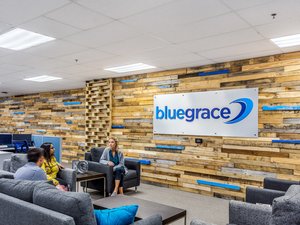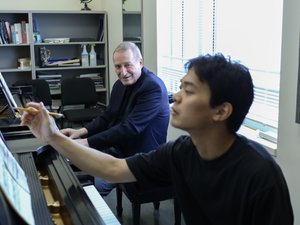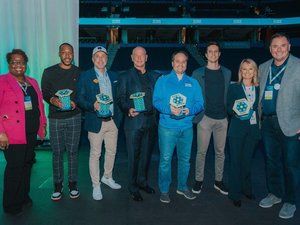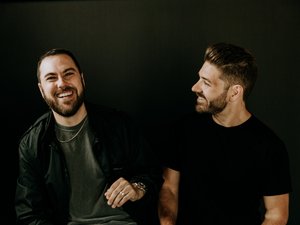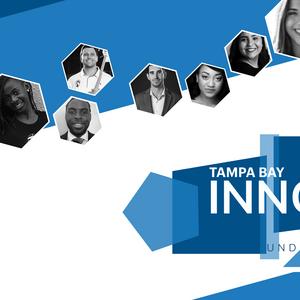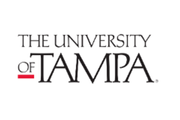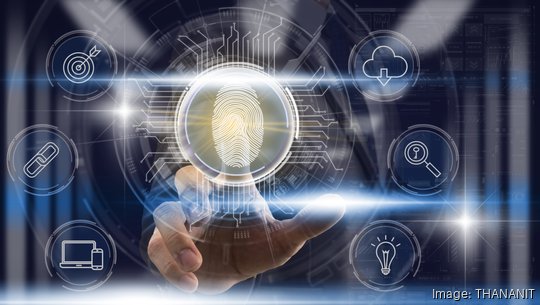
The University of South Florida's Global and National Security Institute — an interdisciplinary program dedicated to thought leadership on global security issues — holds a regular summit to bring together leaders across industries.
For its third-ever summit, the three days of panels focused on an impactful ongoing innovation in tech: artificial intelligence.
One panel focused specifically on the future of Tampa Bay's AI. It featured a conversation between Christopher Hunter, the chief legal officer at Denver-based financial services firm IWP Family Office and Adriana Avakian, the founder and CEO of Ybor City-based software firm TheIncLab.
Hunter is also a senior fellow at the Global and National Security Institute. Avakian moved her human-focused AI lab to Ybor City in 2021 and has since landed millions of dollars in contracts.
The two discussed how Tampa Bay can build its AI pipeline and establish itself as a leader in the field.
On if Tampa Bay can keep up with other tech hubs
- "Tampa has everything going for it. Everything minus transportation is just a well-known issue. What I would like to see is a growing digital industrial base here. We certainly need more talent than we currently have in the area, and we need the ability to attract that talent and put them in a competitive space. When we migrated a lot here, in 2015 and 2020, there was no issue bringing in talent from anywhere in the U.S., but right now, what we're seeing is the cost of living has tripled and that we need to start looking at growing the ecosystem number one, and growing the talent base," Avakian said.
On pursuing an AI career in Tampa
- "What I tell everybody is, 'Don't think that because you're not a C-sharp programmer, you can't get in AI. There are many different disciplines where we hire for UX researchers; we hire across multiple disciplines. So for everybody at USF, there's probably more opportunity in Tampa than in the rest of the U.S., to stay here and to grow," Avakian said.
On the role of government contracting and areas that should receive investment
- "Anything in autonomy, anything that has to do with trusted autonomy, collaborative autonomy, and autonomous systems. It's a great area of interest. We see that the demand has shifted our robots. We had autonomy in 2025, 2026. And as we revised our roadmaps on all of our contracts as of last week, autonomy has shifted by five, six, seven borders to the left. And so that is an area where we currently see more demand and supply," Avakian said.
- "There are many programs out ... I think the government has done quite a good job creating the software acquisition pathway and other ways for authorities to acquire technology. I think that the regulations are still the other part of the government, which is the taxation side is completely disjointed from national strategy, obviously. So we're looking at a punitive system — Section 174 for all of you that do R&D software development here in AI, where we're forced to amortize that cost over five years and create a massive burden on the PNL for anybody. So the message is we need to synchronize policymaking with national security strategy," Avakian said.
